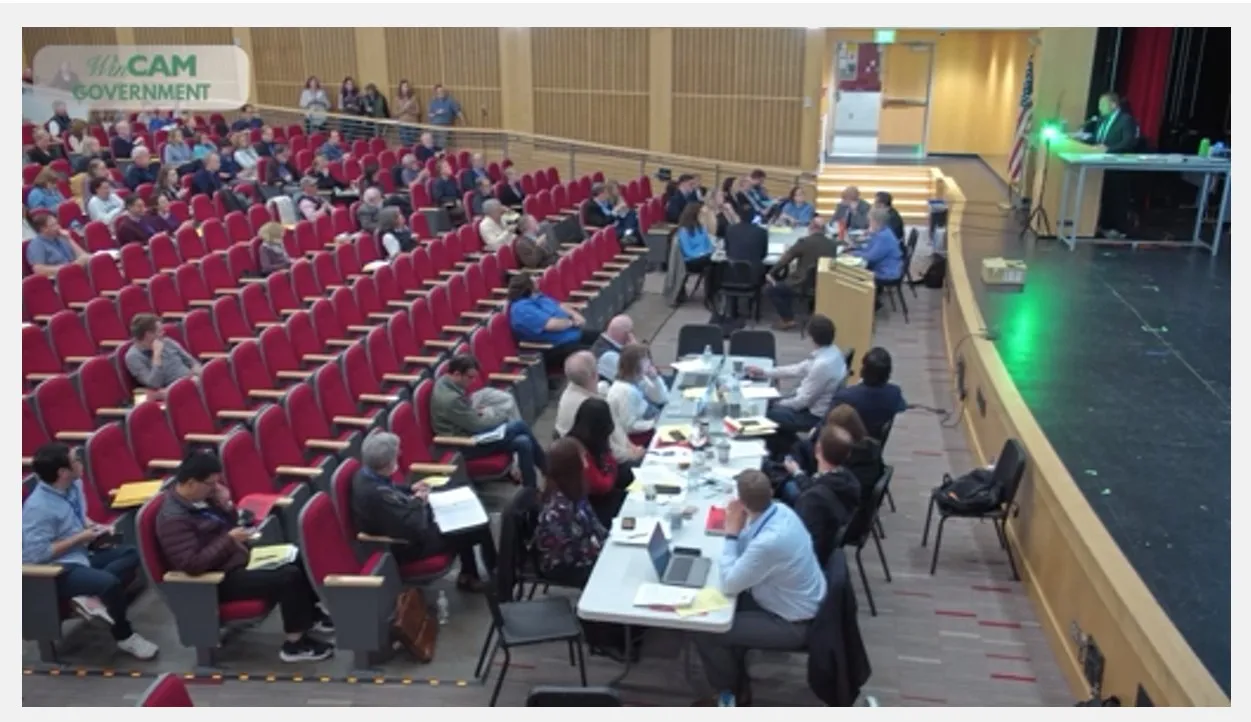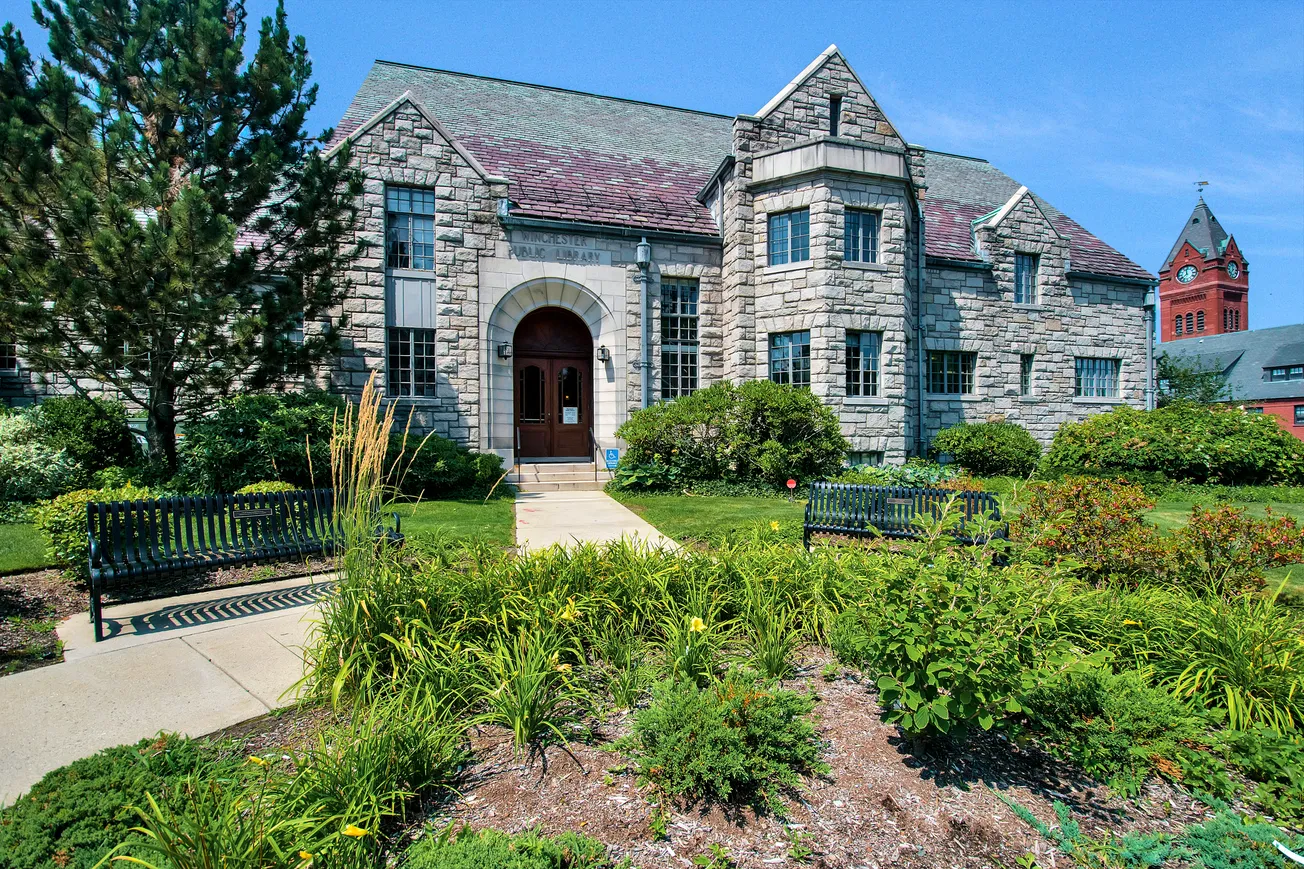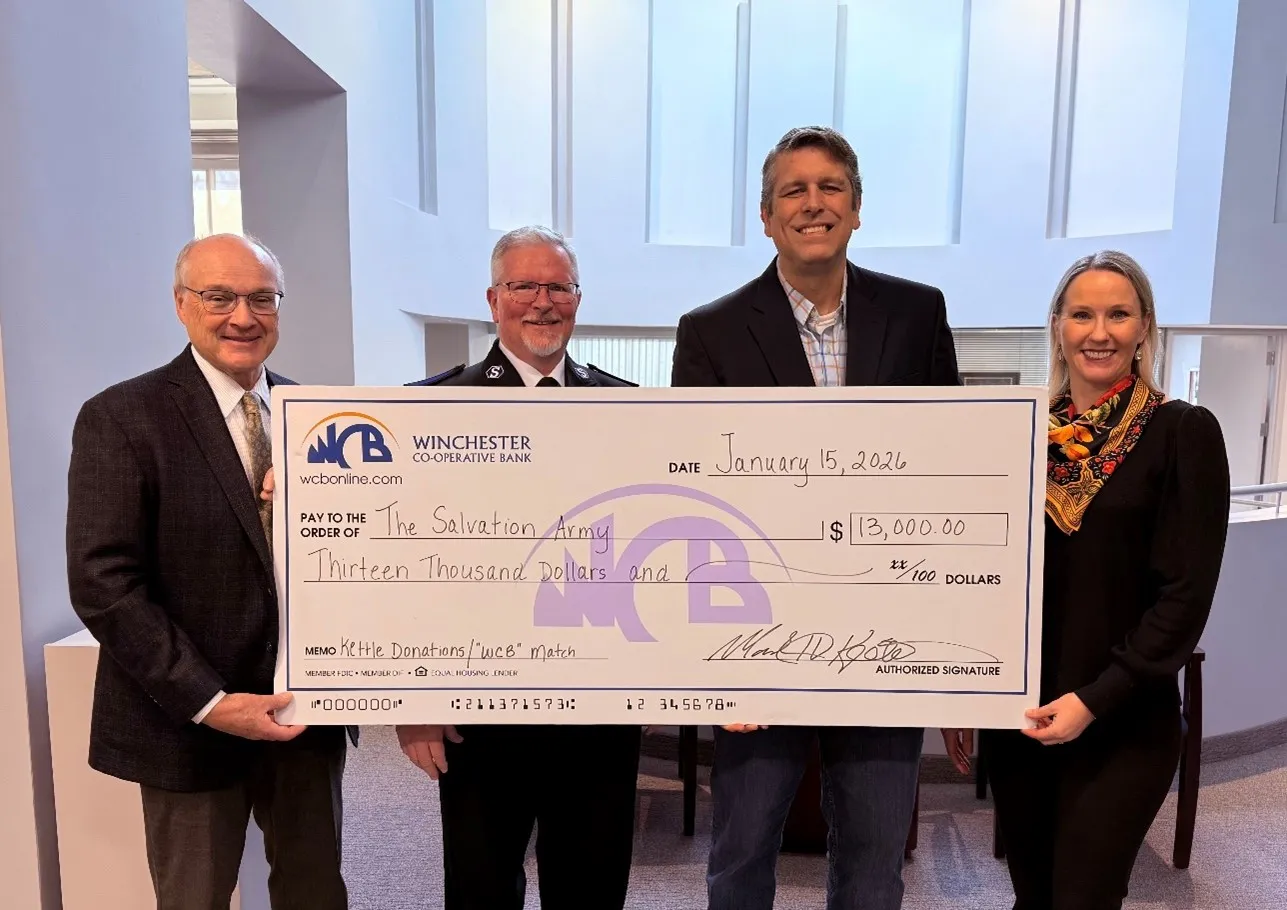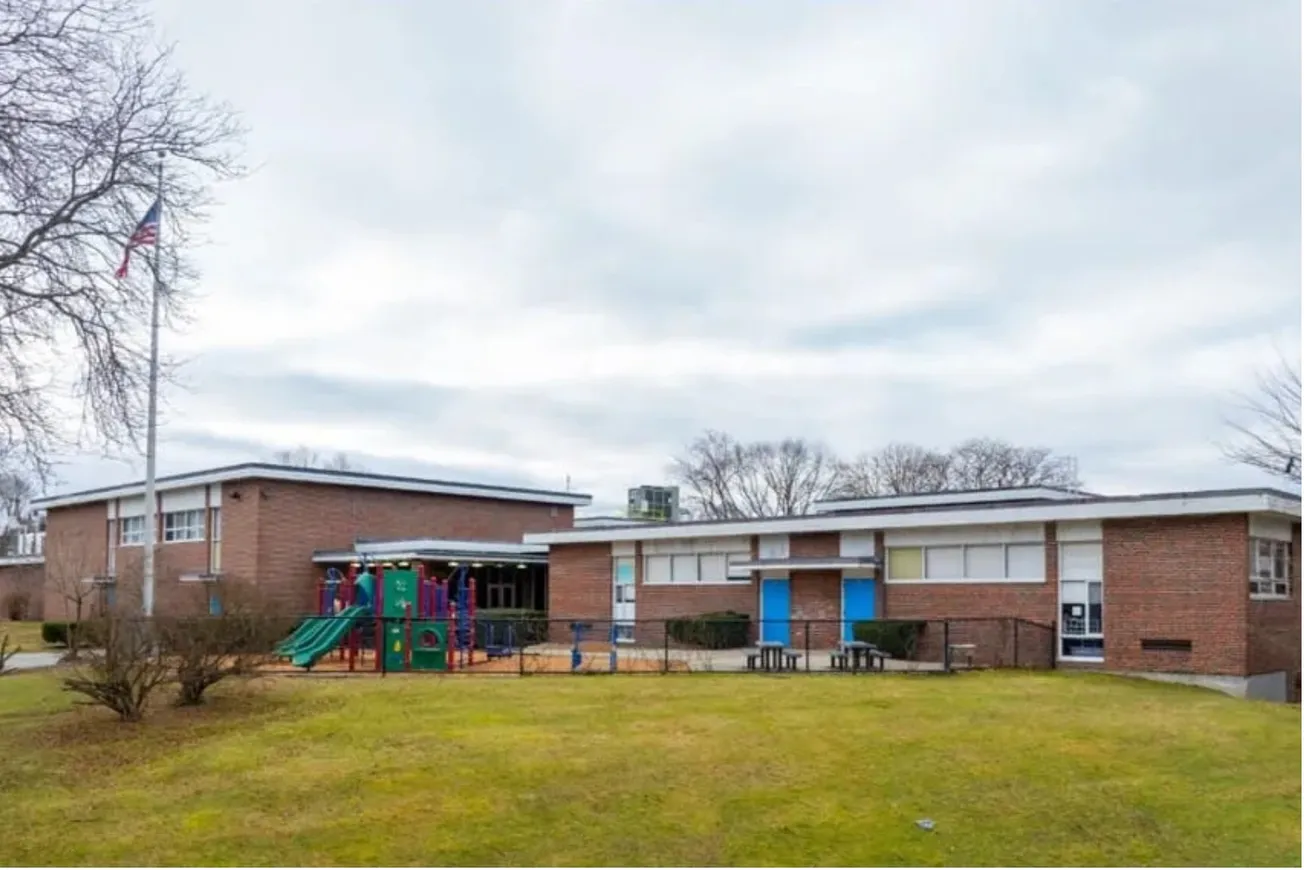Table of Contents
Town Meeting voted to approve the fiscal year 2026 budget in its third session Monday evening, as it turned its attention from bylaws to money.
Town Moderator Philip Frattaroli took the budget out of order, adding Town Meeting would return to the warrant order at its fourth session on May 8. The evening will include the Committee on Government Regulations articles updating town bylaws.
Town Meeting on May 1 adjourned while debating Article 38, which asks the body to reorganize how it does business, moving from Robert’s Rules of Order to Town Meeting Time, among other items.
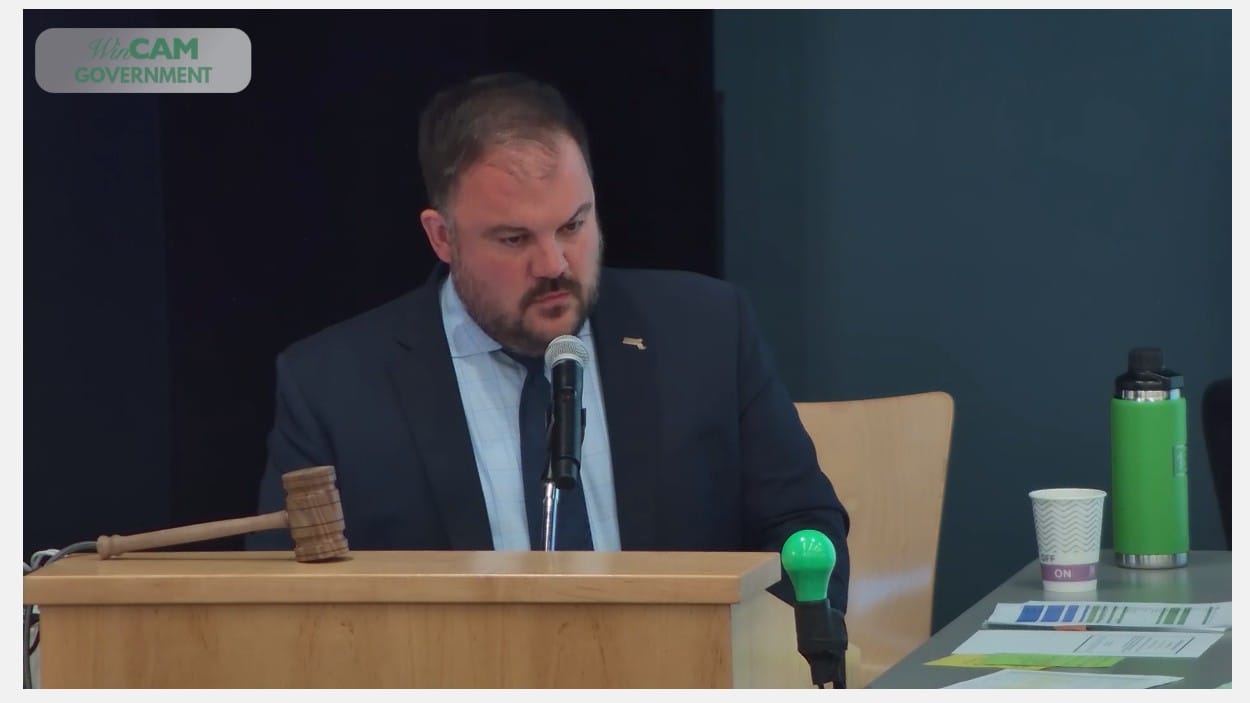
On May 5, the body moved quickly through Article 28, which asked for $455,000 from free cash to support the School Department’s early childhood literacy pilot program. After a short debate, Town Meeting voted overwhelmingly in support.
Town Meeting then moved onto Article 22, the town budget, known as the “yellow sheet.” The current fiscal year ends June 30.
Due to an 18.92% increase in health insurance costs earlier this year, town officials have been scrambling to find a solution to a more than $2 million deficit.
Finance Committee Chair Jeff Calabrese said the town has come up with a way to solve the FY26 deficit by using free cash, among other solutions. However, he added it’s not a preferable method because it could change Winchester’s bond rating and then the town will see its interest rates be higher when borrowing money.
Calabrese recommended Winchester start looking at its incoming revenue as well as its spending. He said he recommended the schools seek alternative solutions to funding.
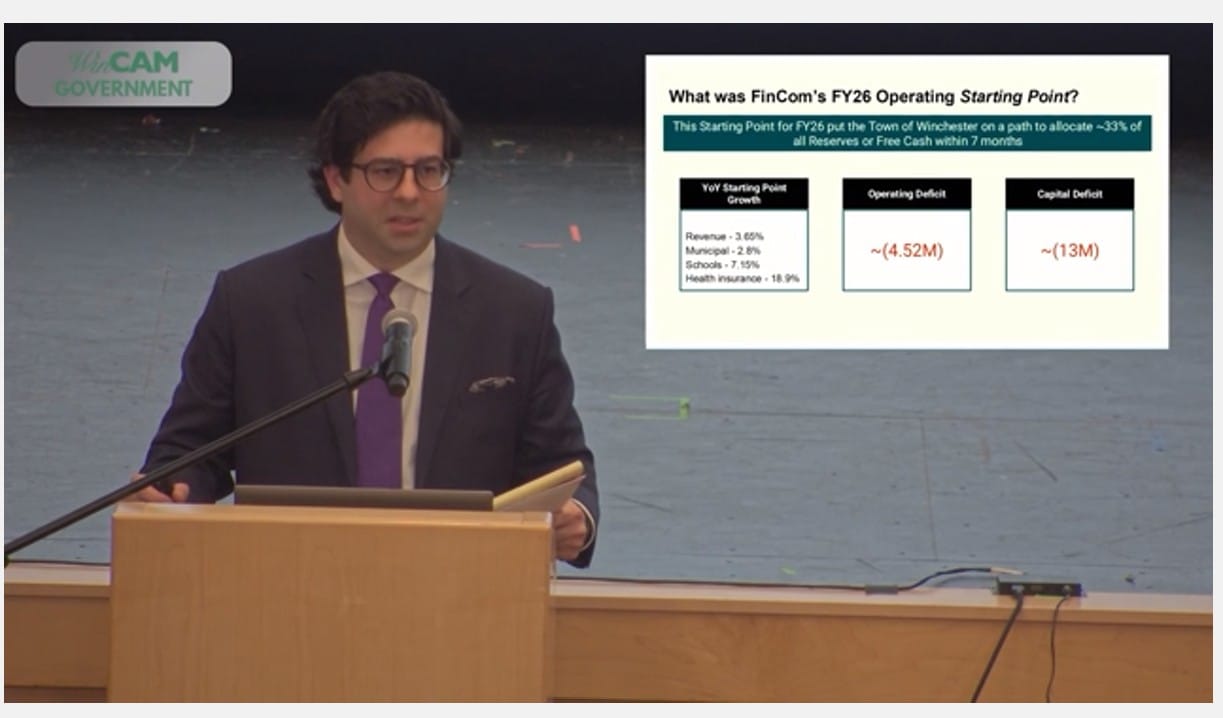
During a long debate over the proposed $70 million School Department budget, Town Meeting members went back and forth over whether they supported the line item. Calabrese pointed out the School Department takes up 87% of the town’s revenue while the town itself only uses 18%.
Calabrese said if Winchester removed all the health insurance issues and every other financial problem, the community would still be in a deficit because of the demanding school budget.
Despite the debate, a $70.4 million school budget was passed with $1.7 million in free cash to make up the difference in its nearly 7% increase.
The rest of the budget was quickly voted on, with the final number coming in at over $163 million.
That number includes more than $13 million for the Water and Sewer Enterprise Fund and $2.4 million for the Recreation Enterprise Fund, Articles 23 and 24, respectively.
Other articles
Article 25 was passed in a voice vote. The article appropriated $30,000 from the Building Stabilization Fund to pay for a new energy efficient boiler at the Muraco School, which was installed in 2012.
Calabrese said FY26 is the final year for the boiler payment.
Article 27 asked Town Meeting for $149,000 to fund the Health Reimbursement Arrangement program titled “Employee Health Care Mitigation Fund.”
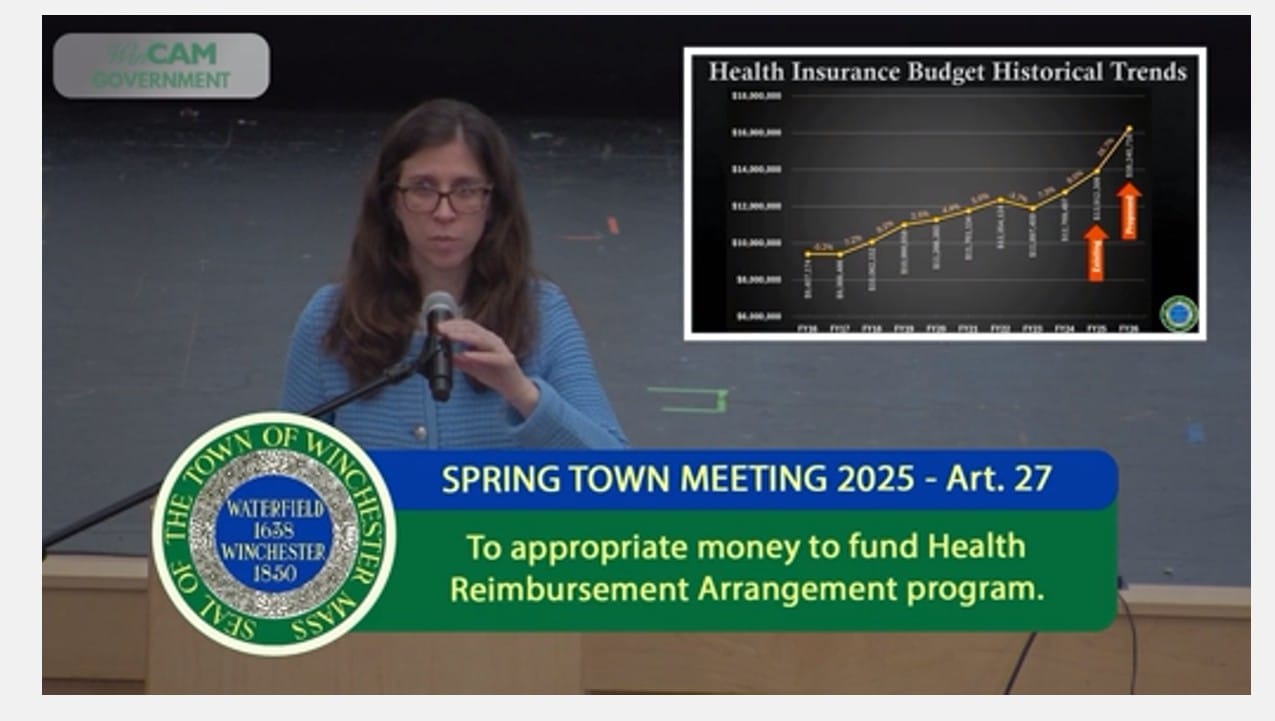
Town Manager Beth Rudolph said the town was shocked earlier this year when its healthcare provider proposed an 18.92% increase in active employee insurance and for non-Medicare eligible retirees for FY26.
The increase was more than 90% of what the town had expected, Rudolph said, forcing Winchester officials to look at serious cost savings in other areas of the budget.
The Select Board in early March voted to implement Chapter 32b under Mass. General Law to allow the town to restructure health insurance by picking the most common package, the state’s Group Insurance Commission.
The move saved Winchester about $600,000.
Rudolph said the town worked with the Public Employee Committee, the committee representing the school and municipal unions, put aside 25%, or $149,000, to reimburse subscribers for increased out-of-pocket costs due to the healthcare changes.
This is the second time Winchester has employed this statute. Rudolph said there was still $36,000 in the fund from last time, which will be added to the $149,000.
Precinct 8 member Diab Jerius said while it’s great Winchester was able to find a solution, going for the most commonly selected plan affects town employees.
“I hope they get the coverage they deserve,” he said.
Town Meeting voted to support the measure.
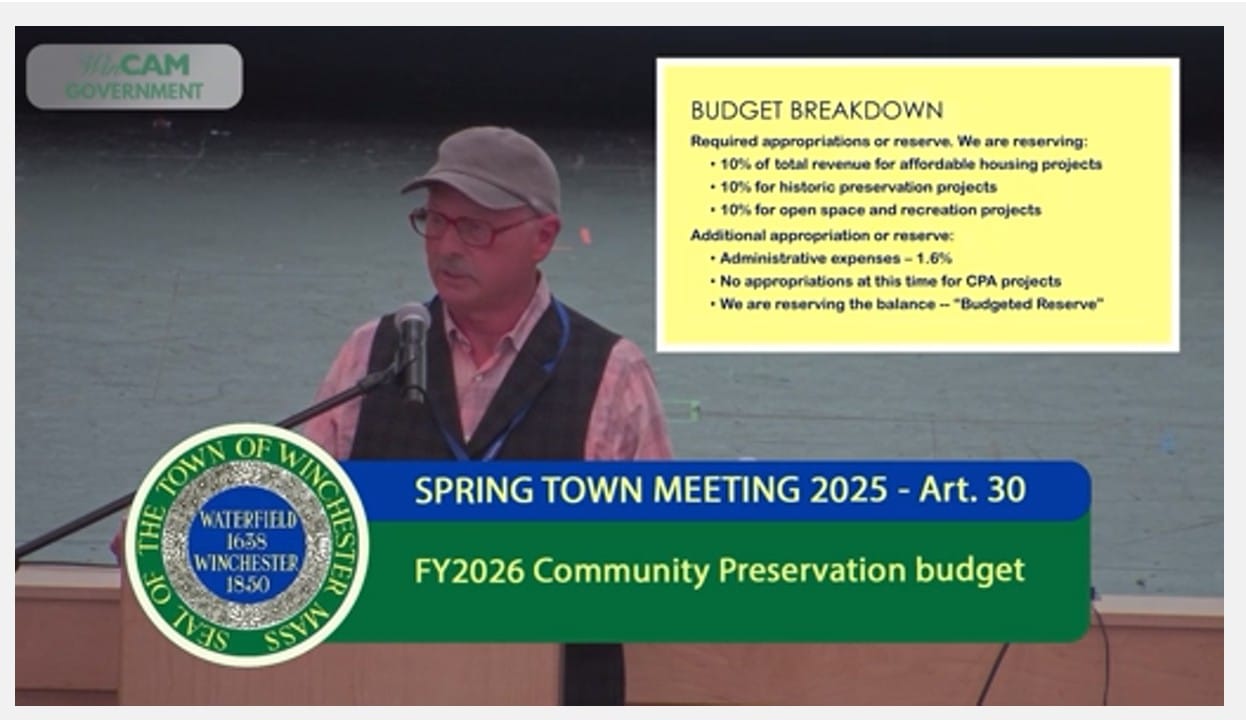
Article 30 was the final measure voted Monday evening. The article asked Town Meeting to reserve 5% from the Community Preservation Fund for administrative costs.
Winchester Committee on Community Preservation (WCCP) Chair David Miller said the town is required by law to put 10% into each of three categories: open space and recreation, affordable housing and historic preservation.
The leftover 70% can be redistributed in any amount to any or all of those three categories.
Winchester in November 2024 voted to accept the Community Preservation Act, which adds a 1.5% surcharge to property bills. The state is expected to match Winchester, but not for the first year.
Miller said the committee is currently going through the process of how to make everything work. He previously told Town Meeting during its first meeting April 28 that the WCCP would be bringing applications to the body next spring.
Select Board Chair Michelle Prior, however, said the town has several projects the WCCP could start looking at, including 160 Forest St., which ticks two of the CPA boxes: affordable housing and preservation.
She said if the WCCP waits until next year, there will be approximately $2.2 million sitting in the fund before anything gets off the ground.
Miller said the committee wants to make sure the process is transparent and equitable, which is why the WCCP wants to make sure there is a process everyone can follow.
He added the committee would examine the idea of any projects that could be done in the meantime and brought before Town Meeting this fall.
“No promises,” Miller said.
Town Meeting voted to support the measure.
Town Meeting is expected to meet in its final session on Thursday, May 8 at Winchester High School auditorium, beginning at 6:30 p.m.

